The Isle of Man has taken decisive action to safeguard its precious bee population by introducing stronger laws designed to maintain its highly coveted “disease-free” status. The newly implemented Importation of Bees Order 2024, which came into effect on Tuesday, marks a significant milestone in the island’s ongoing commitment to environmental sustainability and biodiversity preservation.
A Critical Move to Protect Bees from Deadly Pests
The updated legislation builds upon existing measures that already prohibited the importation of bees to the Isle of Man. However, this latest revision introduces stricter controls, ensuring that harmful pests and diseases do not compromise the health of the local bee population. According to the government, these enhanced measures are essential for preventing outbreaks that could devastate the island’s ecosystem and honey production.
One of the key figures behind the initiative, Chief Veterinary Officer Amy Beckett, emphasized the importance of the new controls, particularly regarding beekeeping products and equipment. “The revised regulations provide much-needed clarity on prohibited items, such as used beekeeping gear, which can carry dangerous pathogens and pests,” she explained.
A Haven for Healthy Pollinators
The Isle of Man has long been recognized as a sanctuary for bees, boasting a unique status that many other regions can only aspire to achieve. In 2015, the island was officially declared free from the Varroa mite, one of the most destructive threats to honeybee populations worldwide. The parasite is notorious for spreading viruses and severely weakening colonies, leading to massive bee losses across the globe.
To ensure this hard-earned status remains intact, the legislation imposes strict bans not only on bees at any stage of their life cycle but also on potentially contaminated products such as unprocessed honey, pollen, and beeswax not intended for human consumption. These stringent regulations are designed to mitigate any risk of accidental disease transmission that could endanger local pollinators.
Why Bee Protection Matters More Than Ever
The significance of this move extends beyond honey production. Bees are the backbone of biodiversity, playing a crucial role in pollinating crops and wild plants. A thriving bee population directly contributes to agricultural productivity and the overall health of the ecosystem.
Dr. Beckett underscored this point, stating, “Maintaining our disease-free status is not just about protecting honey production; it is also about ensuring the stability of our food systems and supporting local biodiversity. Without healthy bees, our agricultural landscape would suffer immensely.”
Aligning with Sustainability Goals
The updated bee protection laws align seamlessly with the Isle of Man’s broader commitment to sustainability. Environment Minister Clare Barber highlighted the island’s responsibility as a UNESCO Biosphere Reserve, reinforcing the necessity of preserving its natural resources. “Our island has a duty to protect this vital asset,” she noted. “By strengthening our biosecurity laws, we are ensuring the long-term health of our bee populations and the broader environment they support.”
This latest legislative move is also a crucial step in advancing the government’s sustainability objectives as outlined in the Island Plan. As global concerns over pollinator decline continue to rise, the Isle of Man’s proactive stance sets an example for other regions striving to protect their natural heritage.
The Global Perspective on Bee Conservation
The Isle of Man’s efforts to preserve its disease-free bee status reflect a growing global awareness of pollinator health. Across the world, governments and conservationists are implementing strategies to combat the threats posed by habitat loss, climate change, and invasive species. Countries such as New Zealand and Canada have adopted strict biosecurity measures similar to those now enforced on the Isle of Man, demonstrating the universal need for action in this space.
Recent reports have shown that global bee populations continue to decline at alarming rates due to environmental pressures and human activities. In response, initiatives such as the EU Pollinators Initiative and conservation projects across the UK are working tirelessly to protect these invaluable insects. The Isle of Man’s new legislation adds to this growing movement, reinforcing the notion that local actions can have far-reaching impacts.
Looking Ahead: The Future of Bee Protection on the Isle of Man
With the new laws set to be formally presented to the island’s parliament in February, expectations are high that they will receive full support. The strengthened legislation represents more than just a regulatory update; it is a bold statement of the island’s dedication to preserving its natural environment.
The Isle of Man’s leadership in bee conservation is a beacon of hope in the fight against pollinator decline. By taking proactive measures, the island is ensuring that future generations will continue to benefit from a thriving ecosystem supported by healthy, disease-free bees.
For those interested in learning more about global conservation efforts and similar environmental policies, you can explore comprehensive reports like this one that delve into various aspects of biodiversity protection worldwide.
In an era where pollinators are increasingly under threat, the Isle of Man’s commitment to safeguarding its bees serves as an inspiring example for regions around the world. This small but powerful step reaffirms the importance of proactive environmental stewardship in the face of global ecological challenges.

